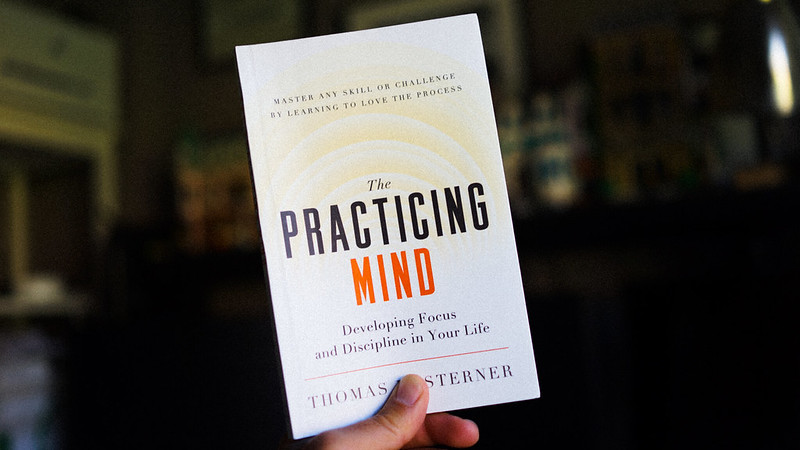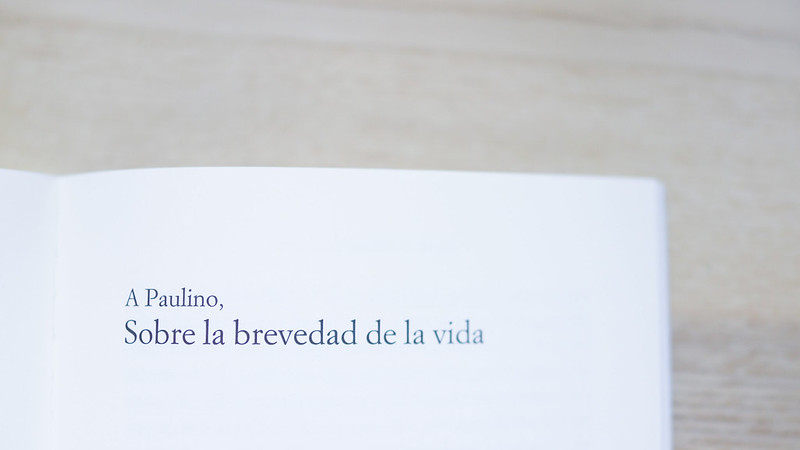When you work, slow down; slow down to a point where you feel ridiculous, where you pay attention to the smallest detail, where you can feel every move.
I read this advice in The Practicing Mind by Thomas M. Sterner. From all the inspiring advice of that small book, this one captured my attention.
There’s something romatic about slowing down and paying attention to detail. It conjures images of a craftsman deep into his work. There’s something exotic about it too, like a place that’s miles away from where you are, and can only be visited in imagination or under very fortunate circumstances.
But the book premise is daring: slow down not just to savour the moment, but to achieve more.
An experience without a trade off? Could this be true? I had to put this to a test. What I discovered was truly mindblowing.
The spiral of time-attention
Slowing down messes up your sense of time. At first I thought it was just my perception, like time felt different, but the repeated results unveiled something deeper than that. Best way I can describe it is with this spiral of time-attention applied to the act of handwriting.

Picture myself writing down a note in the middle of a meeting. Normally, I scribble it down while I keep listening to what is being said. Perhaps the note triggers a thought, and I chase the thought while I keep writing the note. That’s what I’d call the…
Stage 1: Scattered. Try to do many things at the same time. Not here, not there. Superposed states: the cat might as well be dead. In this stage, time flies.
Imagine I slow down a bit. My attention starts to center. I can concentrate on what I’m writing. I’ve moved into…
Stage 2: Focused. Concentrated on what I’m doing. All thoughts on one thing. Attention is a spotlight, centering in the task. In this stage, time gets in sync with your action.
I slow down more now. New things enter my awareness. I notice the way I’m tracing the words on the paper, the shape of my lettering. As I do, I aim for a cleaner look, for a beautiful rendering. With time, I find confidence, I get better, I find joy in the results. I’ve entered…
Stage 3: Absorved. The slow pace allows me to move beyond WHAT I’m doing to incorporate HOW I’m doing it. Details surface. The experience is richer, new opportunities for challenge and reward. There is delight in this stage. The world recedes into the background. In this stage, I lose track of time.
I slow down even more, to the point it is embarrasing. Not even a kid would move so slowly. The quality of the experience becomes strange. I can notice the lead of the pencil touching the paper. I feel the textures. I’m clearly aware of the pressure I’m applying, the temperature of the room and the sounds around me. I am…
Stage 4: Transported. The action transcends the intellectual into the sensorial. Touch, hearing, smell enter the stage. I’m capturing the full quality of the experience. At this stage, time literally slows down.
Please don’t miss the point I just made: I said time literally slows down, and by literally I mean LITERALLY. At this stage, time dilates.
What?! Those were just 5 minutes?!
I tested again. Same results.
What is going on here?!
This defeats every rational notion. It’s hard to believe. This is some sort of wormhole; this is Neo’s bullet time; this is Peter’s heigthened sense; this is Hermione’s_time-turner_. Magic spells at your command. To trigger, just move absurdly slow.

What to make of this now? This changes everything!
The paradox of speed
How to reconcile such contradictory beliefs? For as long as I can remember, I’ve been complaining about lack of time. So many things to do! The day is not long enough!
But now I must believe that the problem is not my lack of time, but my excess of speed, that I can do anything if I slow down enough.
How about that for a paradox? But here’s the problem, though. Slowing down is easier said than done. The slope of the spiral is slippery. It only takes one thought to push you down from the blissful top to the scattered bottom. And those thoughts will creep in—oh yes they will!—the moment you consider the idea of using the spell on time to your benefit.
There’s a moment in which the system of the world wants you to master the art of slowing down. He wants it because he can use it to his benefit. Of course he wants it, he always wants more. That is the moment in which slowing down becomes a target, an ambition, a goal. At that very moment, the magic is spoiled.
So now I spend my days climbing that spiral and trying to hold up, for as long as I can; longing for the time it was all playful and unbelievable. Oh, life, so cruel! It will show you her powerful secrets while you are pure and innocent, but, the moment you come to expect them—to exploit them—she will take them away from you.
She left me trying to not try. She left me, in essence, learning to unlearn.

- You can bend time through attention.
- You can summon attention by slowing down.
- Slowing down dilates time.
- You can do anything, if you slow down enough.
- Life is only lived at low speed.
- But moving slow demands a lifetime of will and presence.
So if I find you idle at your desk I have to assume that you are bending space-time, correct?
That’s it.
But shouldn’t it be the reverse?
What?
If you are dilating time, I should see you moving very fast.
…yes… well… look, I don’t know how it works, but IT WORKS.




